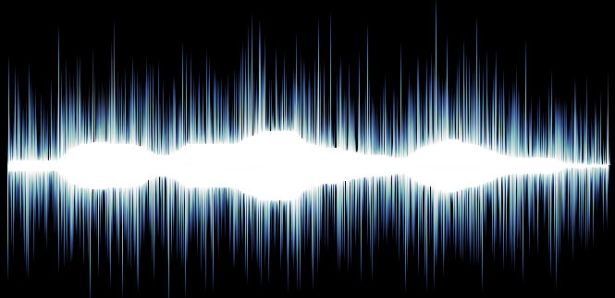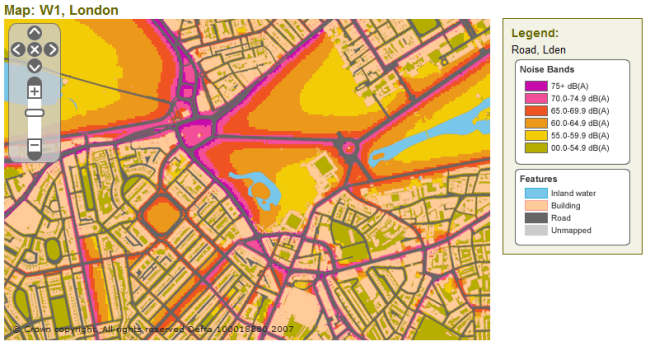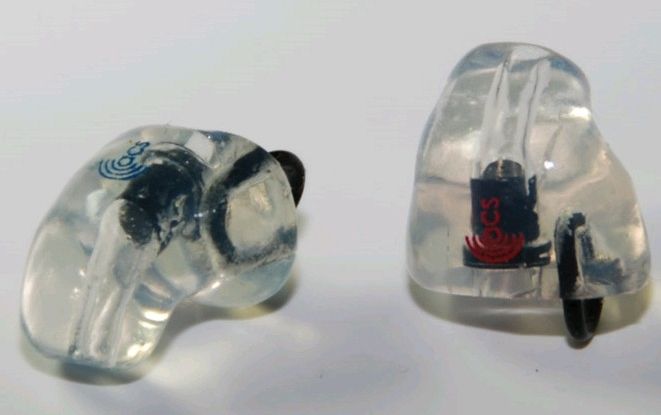The world is a noisy place. Even when you think it’s quiet, it’s not. What can you hear around you now? The hum of a refrigerator, the whirr of your computer fan, voices across an office, phones ringing, the sound of the traffic, the low buzz of a fluorescent strip light, a plane flying overhead, the birds tweeting in the trees, a ticking clock? Unless you’re living out in desert, chances are your ears are witness to a veritable cacophony, and guess what? They’re getting tired.
Yes, your ears are sick and tired of it because they so rarely get a break and the more work they have to do, the worse and worse they’re getting at their job. With time, we know that our hearing will slowly deteriorate because of it as we grow older. Cheery fact but that doesn’t mean that we’ll all be half deaf in our latter years and there’s plenty we can do to make sure we maintain as much of our aural prowess as we can. So whether you’re looking to save for the future or you're having your head done in by all the chatter around you, here are a few tips on how to reduce the noise in your life.
Turn off your electricals
Just about all your major gadgets create some kind of noise when they’re switched on and some even do so in standby mode. The most notable culprits are laptops, desktops, games consoles, set top boxes and TVs. Most of these guys have in-built fans to keep themselves cool with some of them louder than others. If you’re using them, well, then there’s not a lot you can do but there’s no point in leaving your Xbox running while you switch back to watching TV. All that means is that you need to pump the volume louder in order to compete with the fan, causing more stress on your poor old ears. As well as that, be wary of the very high pitched, almost inaudible noises that some TVs can make when in standby mode. It’s also more power efficient to switch them off completely anyway.
Look at noise maps
Whether you’re looking to move house to a certain area or you just want to take a route on foot through a quieter part of town, then noise maps are a must for getting the skinny on the state of sound pollution where you are. DEFRA, the department for environment food and rural affairs, launched a set of noise maps in 2008 for the major UK cities. They show levels of noise by different colour bands on the maps with particular focus to sound coming from roads, rail and airports. Well worth a look.
Soundproof you house
Whether it’s your neighbours, traffic or anything else, just because you don’t happen to live in a quiet spot, it doesn’t mean that there’s nothing you can do to protect yourself. You can help soundproof your home without having to shell out for any kind of expensive and highly technical solution. Hard floors and walls are better for carrying sound, so one option is to dampen that with rugs or, better still, wall to wall carpeting. Tapestries or any other material hangings will also work wonders and, if you can face it, there’s always the option of covering your walls with old egg boxes, but that could be where the trade off with aesthetics comes in. Finally, double glazing or just better fitting sashes will also work miracles both for noise pollution and keeping your heating bills down as well.
Build a wall
Now that can be a load of old printer boxes, stacks of paper, a bush or row of trees in your garden or whatever you like - a wall is an excellent way of screening sound. Waves are not a big fan of travelling through solid objects, so the denser the better. Even something as simple as a sheet would make the sound have to diffract around the barrier and it’ll be significantly less intrusive by the time it gets to the other side.
Use apps
We’ve already taken a look at 10 great apps to protect your ears, but there are hundreds out there to try and plenty of them are free. Whether it’s setting the volume on your music player to a safe level or checking to see if your hearing’s okay at present, there’s plenty to choose from. Do take a look.
Fight noise with noise
Even after all the techniques above, it’s sometimes the case that the pollution about you is either too strong or you’re just stuck in a busy office with no walls to hang your tapestries on, or an office manager who’s not going to be too happy about you trying to do so. So, one thing you can do is to smooth out the sounds you’re trying to block with a little soothing white noise of your own. We don’t recommend blasting yourself with static but something like wind chimes or a small water feature will do the trick. You can get little desktop ornaments to do the job or you can get the landscape gardeners in at home if it’s something for your back yard.
White noise gadgets
Along the same theme, you can get more specific gadgets to create white noise that’s actually designed to directly counteract noise issues. Noise Canceller is an Android app that analyses the sound coming in through your phone’s mic and plays the negative wave form back through your headphones in order to cancel it out. Perhaps a more trustworthy option is to put on a pair of noise cancelling headphones without playing music through them.
If you happen to suffer from tinnitus, you can get wearable sound generators to fit in your ears at all time which will play back very quiet levels of white noise in order to soften out the ringing.
Clean your ears
It’s an obvious one but one easily overlooked. Large amounts of wax will cause ringing in your ears, so it’s always worth going to an audiologist to have them either syringed or, if you prefer, you can get it sucked out by special machines. There are home devices such as ear candles and, of course, cotton buds to do the trick as well as some more high tech options we’ll be looking at another time but for the most effective method, it’s going to be a visit to your GP.
Ear plugs
Highly underrated, but ear plugs are an absolute must for helping to reduce the noise in your life. Everyone knows that they’re useful if you’re trying to sleep in noisy surroundings or work on a building site, but they’re also fantastic for going out to a gig or a club. Just because you have them in, it doesn’t mean that they’ll block out the music. In fact, you often get a more balanced sound of the tracks. What’s more, you won’t walk out after an hour of standing next to an amp with your ears ringing until the next morning or even longer if it's serious.
Move
If you’ve tried all of the above and you still can’t stand the noise where you live or work, then it’s time to move. Not only are you damaging your ears but you’re also driving yourself mad. Yes, it might cost you a bit of money and convenience to make the switch, but it’s about quality of life and, frankly, you’re obviously not getting any if you’re down to the last resort. It might seem like a huge upheaval but you’ll thank yourself in the long run. Just remember to check those noise maps carefully before you decide where you’re going.
For more on how to protect your ears and some recommended headphones that'll help do the job for you, check out Etymotic and the ER 4 MicroPro series.



